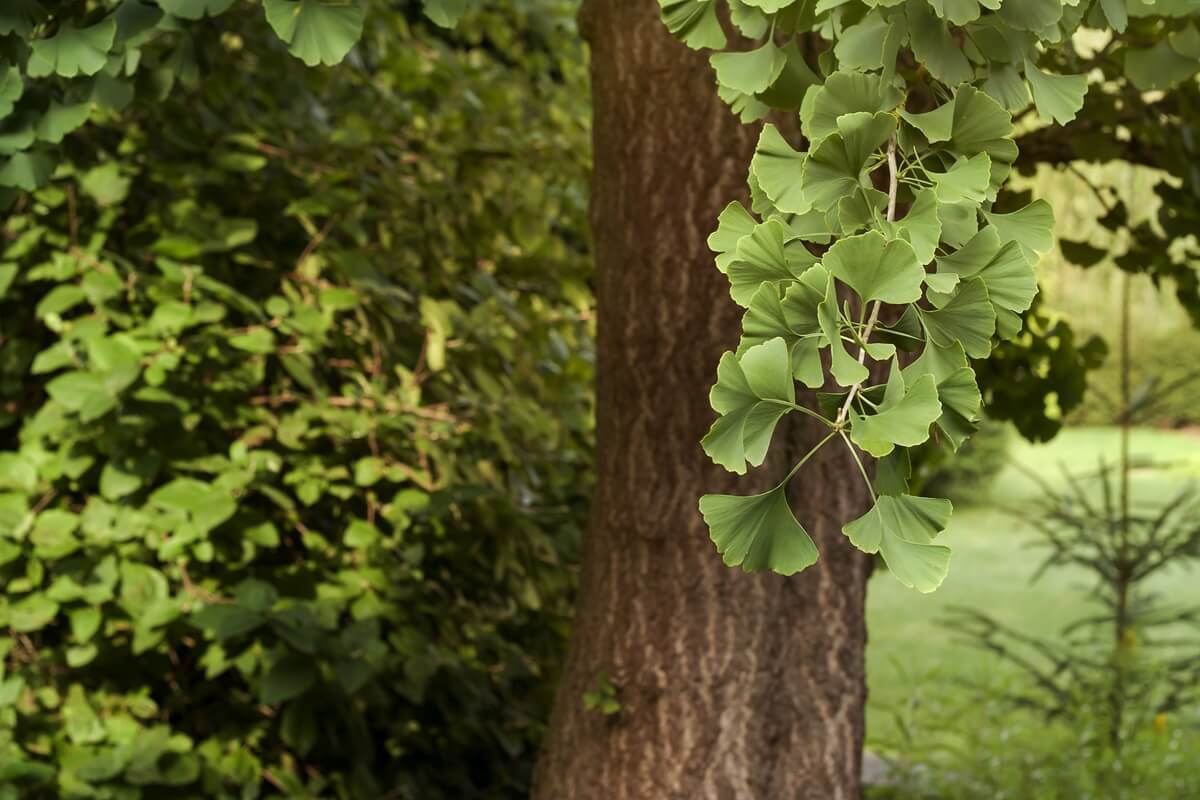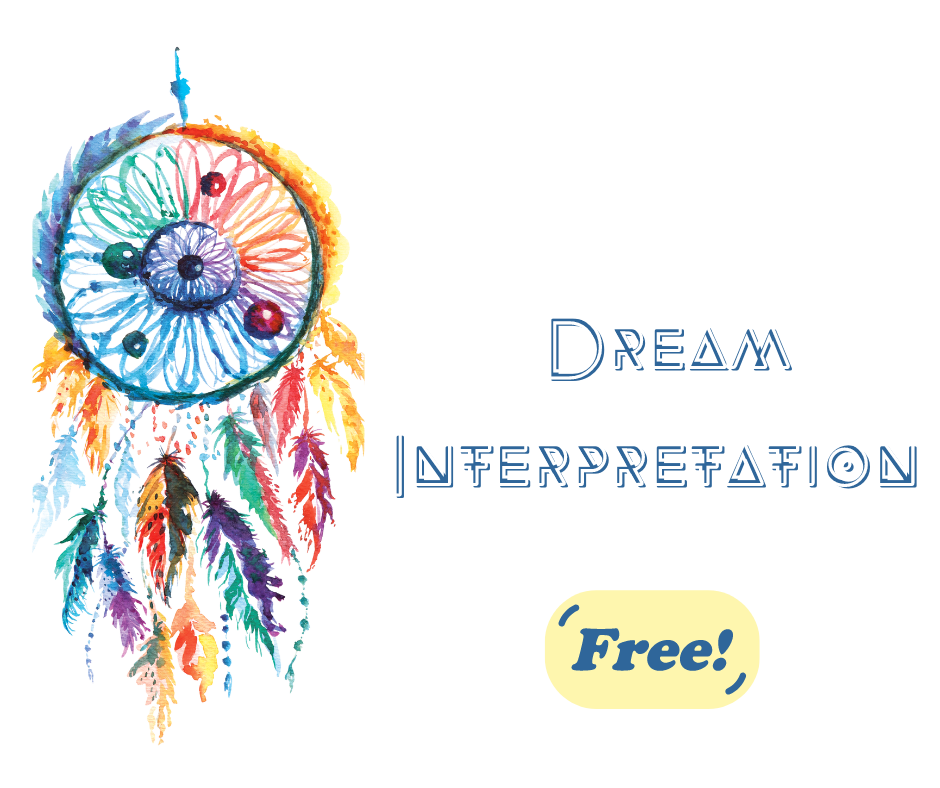The ginkgo tree (Ginkgo biloba) is an ancient Asian medicinal plant, used in traditional Chinese medicine for at least a thousand years.
Ginkgo is a misspelling of the Japanese name for the tree, gin kyo, which is derived from the Chinese yin xing.
It means “silver fruit.”
Biloba refers to the shape of the leaves and comes from the Latin bis (“two”) and loba (“lobed”).
Ginkgo may be the oldest known tree.
It is a living fossil as it is the sole surviving species of a group of ancient plants which existed more than 270 million years ago.
So yeah, basically ginkgo was dinosaur food!
Not only is the ginkgo tree ancient, but also incredibly long-lived and durable.
Some ginkgo tree specimens are thought to be older than 2,500 years old.
667 year old ginkgo trees show almost no signs of aging.
With its multiple antibacterial and chemical defense mechanisms and its ability to form aerial roots and sprouts, the tree is resistant to fire, disease, pests, and pollution.
In fact, ginkgo trees survived the atomic blast on Hiroshima, Japan in 1945!
About 2-3 million years ago, Ginkgo trees became extinct except in a small area in China, where the modern species survived.
In the 11th century, Chinese Buddhist monks who regarded the tree as sacred began cultivating it.

Parts Used in Herbal Medicine
- Folium Ginkgo – dried leaves (most commonly as an extract)
- Semen Ginkgo – the seed is used in Traditional Chinese Medicine
Constituents – How Ginkgo biloba works?
Ginkgo increases blood circulation, especially in the brain.
Taking ginkgo thus may protect and enhance brain function.
Which of the many substances contained in ginkgo is responsible for its effects?
These are the ones we currently know most about:
Terpene lactones
These consist of the bitter ginkgolides and bilobalide.
This very special substances are
- antioxidant
- anti-asthmatic
- bronchodilators
- anti-inflammatory
They can suppress airway constriction, reducing asthmatic symptoms such as coughing, wheezing, and shortness of breath.
They can also protect brain cells by increasing blood flow and nutrients to the brain.
Flavone glycosides
Ginkgo contains potent antioxidants, which protect nerve cells.
They are also antispasmodic.
Ginkgo biflavones/bioflavonoids/biflavonyl
Bioflavonoids in Ginkgo biloba (ginkgetin) bring oxygen and energy into the brain.
Pinitol
Ginkgo contains pinitol, an inositol compound, which may improve:
- insulin response
- ovarian function
- metabolic and hormonal parameters which support fertility
Ginkgo biloba in Chinese Medicine
In Chinese medicine both the seeds and the leaves of Ginkgo biloba are used.
Bai Guo (Semen Ginkgo)
Gingko nut/seed (Bai Guo) has a been used in traditional Chinese medicine at least since the 15th century for:
- frequent urination and enuresis (inability to control urination)
- bronchial conditions
- shortness of breath
- dispelling phlegm
- loss of voice
- tuberculosis
- wheezing
- asthma
- cough
The seeds must be dry-fried with heat to reduce their toxicity.
Yin Xing Ye (Folium Ginkgo)
Ginkgo leaves are not frequently used in traditional Chinese medicine.
The leaves were used externally to treat sores.
Internally, they were used for
- relieving feelings of chest pain (e.g., coronary artery disease, angina)
- shortness of breath
- wheezing
- diarrhea
Ginkgo leaves were also used as a tonic for the heart and lungs.
They are regarded as a jing tonic, which can help with senility and other difficult aging problems by providing a good basis of nutritional enrichment for other remedies.
Indeed, as we shall see below, the herb has been shown in clinical studies to increase blood flow and neural transmission in the brain.
Ginkgo biloba in Medical Herbalism
In the 18th century, Ginkgo biloba was introduced into Europe and the US, and described by Western science for the first time.
It took several decades for Western medical herbalists to realize this plant can effectively improve blood circulation, especially in the brain and extremities.
Dr. Atkins calls it “the most important plant-based medicine available” in his book Vita-Nutrient Solution. He writes:
no one with serious mental or vascular problem should give in to drug therapy, I believe, without first trying ginkgo.
Indications
According to the World Health Organization (WHO), the following medicinal uses of ginkgo are supported by clinical data:
1. To reduce symptoms of dementia due to not enough blood reaching the brain, such as:
- lack of energy, tiredness, and decreased physical performance
- lack of vigilance / disturbances in concentration
- ringing in the ears (tinnitus)
- absent-mindedness
- dizziness / vertigo
- memory deficits
- depression
- confusion
- headache
- anxiety
2. Reducing pain associated with not enough blood reaching the arms/legs.
3. To treat inner ear disorders, such as hearing loss, tinnitus, and vertigo.
Other conditions which may improve through ginkgo supplementation include:
- Premenstrual syndrome (PMS) – 80 mg GBE twice daily was effective against symptoms of PMS (e.g., breast pain or tenderness)
- Tardive dyskinesia
- Schizophrenia
- Depression – 80 mg of GBE three times daily enhances the effectiveness of standard antidepressants, particularly in people older than 50 (and relieves sexual dysfunction, a symptom of some antidepressants).
- Anxiety
- Stroke
The Nervous System
Ginkgo is regarded as a brain tonic by herbalists.
Now we can already understand why.
Because of its ability to improve blood flow to the brain, ginkgo may improve brain function.
Therefore, ginkgo is often added to “brain foods” and to “herbal ecstasy” preparations.
Ginkgo is also widely used for the prevention and treatment of dementia.
Not only does it improve symptoms, but may also stabilize or slow the progression of dementia, including Alzheimer’s disease.
Can ginkgo benefit healthy people though?
Apparently, it may…
Studies show that ginkgo modestly improves age-related memory impairment and slows memory loss among elderly people with normal cognitive function.
Ginkgo for Autism Spectrum Disorders (ASD)
Due to Ginkgo biloba‘s effects on the nervous system and their anti-oxidant and anti-inflammatory properties, it has been put to the test for treatment of autism.
One study revealed that ginkgo can reduce chemically-induced ASD symptoms…
…however, it was done on mice.
A small study on humans with ASD demonstrated some improvement on the Aberrant Behavior and Symptom Checklist (ABC), which is a scale measuring 5 domains of behavioral disturbance:
- irritability, agitation, and crying
- hyperactivity/noncompliance
- lethargy/social withdrawal
- inappropriate speech
- stereotypic behavior
However, there were only 3 participants, receiving two doses of 100 mg Ginkgo Biloba EGb 761 for 4 weeks.
Moreover, it was not a randomized-controlled trial, so no definite conclusion can be drawn.
A double-blind placebo controlled trial of Ginkgo biloba was done on autistic children who were also taking risperidone, an antipsychotic drug.
Adding Ginkgo biloba to risperidone did not affect the treatment outcome.
Ginkgo was also put to the test for ADHD (Attention-Deficit/Hyperactivity Disorder) symptoms, but was found to be less effective than methylphenidate.
Heart Health
Ginkgo improves arterial function, benefits blood vessels, and is an important heart herb – a primary cardiovascular tonic.
It is recommended both for the prevention and treatment of heart and blood vessel problems.
Ginkgo lowers blood pressure, dilates peripheral blood vessels, and increases peripheral blood flow.
The Endocrine System
Ginkgo is also used to support hormone replacement therapy in hypothyroidism.
It may lessen the damage from atherosclerosis due to hypothyroidism.
Ginkgo is also used for:
- hypertension and inflammation in Graves’ disease
- impotence due to diabetes/poor circulation
- menopausal hypertension
- thyroid eye disease
- diabetes
Sexual Dysfunction
Ginkgo may be beneficial in the treatment of erectile dysfunction caused by lack of blood flow.
High-Altitude Sickness
80 mg of ginkgo twice a day prevented acute mountain sickness and vasomotor disorders of the extremities, according to a study involving a Himalayan expedition of moderate altitude with gradual exposure.
Ginkgo biloba as a Nootropic
When MDMA became illegal in the 1980s, “herbal ecstasy” preparations appeared on the market, which try to replicate the effects of MDMA.
Some herbal ecstasy preparations contain an extract of Ginkgo biloba.
What is the role of Ginkgo biloba in herbal ecstasy?
It is said to stimulate the brain and to strengthen memory.
By facilitating blood flow to the brain, it improves brain and cognitive function.
Studies done on mice showed ginkgo does improve memory and learning.
Regular administration has been shown to lead to memory improvements in Alzheimer’s disease.
According to Dr. Michael Greger, while Ginkgo does not appear to prevent cognitive decline or dementia, it may have some benefits in treating these conditions. Specifically, Ginkgo biloba extracts could potentially slow down cognitive decline in individuals already diagnosed with Alzheimer’s or other forms of dementia. However, it’s important to note that the evidence supporting these benefits is inconsistent and not universally accepted in the scientific community. Therefore, while Ginkgo Biloba might offer some therapeutic value for those already suffering from cognitive impairments, it should not be relied upon as a preventative measure against dementia.
Athletic Performance
6-week supplementation with 160 mg per day of Ginkgo biloba extract provided some some marginal improvements in the endurance performance of physically active young men
Ginkgo biloba & Sleep
Can Ginkgo biloba cause sleep problems?
No. Ginkgo is not known to disrupt sleep in any way, with the exception of possibly inducing vivid dreams (see below.)
People suffering from cold feet may find they are able to fall asleep faster on ginkgo.
Ginkgo biloba Dreams
Some people report experiencing extremely vivid dreams under the influence of ginkgo.
In fact, some people describe ginkgo dreams as “crazy” or “weird.”
Ginkgo dreams are said to be clearer, longer, and more stable.
Does Ginkgo biloba cause bad dreams?
No. Ginkgo is not known to cause bad dreams or nightmares.
Ginkgo biloba & Lucid Dreaming
The main benefit of Ginkgo biloba for lucid dreaming specifically and dreamwork in general is its purported ability to improve dream recall.
In Ayurveda, it is said that ginkgo has good effect on recalling dreams.
With Ginkgo biloba reputation as one of the best memory herbs, it’s not surprising people will try using it for purpose of improving dream recall.
There’s plenty of anecdotal evidence that ginkgo is indeed effective at that.
If your inability to remember dreams is caused by blood flow issues, ginkgo will probably help.
Some people also report more lucid dreaming when taking ginkgo.
Ginkgo dosage for lucid dreaming: 150-300 mg per day.
The effect on dreams generally only becomes noticeable after at least a couple of days usage.
Getting enough sleep is obviously required as well.
For even better improvement in dream recall, add vitamin B6 and perhaps other B vitamins as well.
Side Effects
Ginkgo has demonstrated a very low incidence of side effects, which may include:
- Increased risk of bleeding
- Allergic skin reactions
- Heart palpitations
- Gastrointestinal disturbances (e.g., discomfort, nausea, vomiting, diarrhea, constipation)
- Restlessness
- Headaches
- Dizziness
Taking ginkgo with food may help.
Warnings
The seeds are covered with a coat, which can cause contact dermatitis if handled without protection.
Raw ginkgo fruits are toxic; safe ginkgo extracts are derived from the leaves.
Do not take ginkgo without consulting with your doctor first if you’re
- taking medications, even OTC drugs such as ibuprofen and melatonin.
- suffering from any health conditions such as bleeding disorders, diabetes, seizures, or G6PD deficiency.
- trying to get pregnant.
Stop taking ginkgo at least 2 weeks before a scheduled surgery.
Use in pregnancy or while breastfeeding is not recommended.
Preparations and Dosage
In scientific studies (and most ginkgo supplements), a standardized extract is used with specific concentrations of the active ingredients.
Dry extract 35-67:1 (from dried leaves), standardized to contain:
- 22–27% flavone glycosides
- 5–7% terpene lactones
- 2.8–3.4% are ginkgolides A, B, and C
- 2.6–3.2% bilobalide.
Dosage: 120-240 mg per day, divided into 2-3 doses.
According to Dr. Atkins, perhaps the father of functional medicine, the therapeutic dose is 240-360 mg per day and Ginkgo biloba is most important for:
- Alzheimer’s and Parkinson’s disease (160-320 mg per day)
- heart and vascular health (240-360 mg per day)
- eliminating headaches (240-480 mg per day)
- macular degeneration (240-360 mg per day)
It is moderately important for:
- asthma and emphysema (240-360 mg per day)
- cataracts (240-360 mg per day)
He also recommends it for:
- general mental acuity for anyone 40 years old or older (120-160 mg per day)
- low libido/impotence & increase a man’s sex drive (240-360 mg)
- maximizing brain function (60-120 mg per day)
Peak plasma levels are reached 1.5 hours after ingesting ginkgo, but it doesn’t matter when you take it as long as you take do so regularly.
Effects may become apparent after 4-8 weeks of treatment with Ginkgo biloba.
There are also ginkgo tablets and oral solutions which are prepared from standardized purified extracts, as well as capsules with the dry herb.
Dosage of 1:1 fluid extract: 0.5 ml, 2-3 times per day.
Ginkgo 1:5 tincture dosage: up to 3 tsp (15 ml), twice a day.
To make ginkgo tea:
- Steep 1 teaspoon dried ginkgo leaf in 1 cup boiling water
- Wait 5-7 minutes.
- Strain.
- Drink 1-2 cups per day.
Smoking Ginkgo biloba
Ginkgo biloba dried leaves can also be smoked or vaped.
In fact, a patent was registered for Ginkgo biloba L. leaves cigarettes.
The inventors describe it as having
not only has the function of refreshing, but also is good to people’s health. […] Because Ginkgo biloba L. leaves contain a large amount of flavenoids and Ginkgolide […] and these pharmaceutical active ingredients are easy to volatilize and can be absorbed into lung, then good effects will be done. The smoke of this kind of cigarette is soft and dense, and it can prevent and cure hypertension, heart disease, arteriosclerosis and senile dementia disease.
The patent unfortunately has expired and I could find no reports from people who tried smoking ginkgo leaves.
One person however reported an experience with smoking ginkgo solid extract.
He used isoprypol alcohol to extract a tar-like substance with clear crystals, which he smoked and ate after drying. He writes:
About 30 min. later I began to feel really euphoric. I smoked three pinch bowls of cannibus to greater increase the effects (since this is the nature of mary jane in any case). I felt as if I was on an acid trip without the visuals or any hallucinating. All that was present was the euphoria and insight. I felt 100 times smarter and more confident of myself.
Combinations
Adding melatonin, which is another vivid dream oneirogen, may potentiate Ginkgo biloba‘s dream effects.
Fibromyalgia symptoms may improve by taking CoQ10 along with Ginkgo biloba.
Adding ginkgo leaves to green tea makes a Mental Sharpness / Meditation Potion.
Taking ginkgo with DMAE may induce hypnic jerks along with WILDs / out-of-body experiences.
One person reports:
noticed dramatic change in awareness. Basically I was in another setting. and I was shifting between settings untill finally arriving back to bed. Another time, same story, exept I had a class after exam. So I closed my eyes and went to sleep. […] I could see the classroom through the closed eyes….I noticed a jerking motion of my arm.
Purchase
Much of the world’s ginkgo leaf supply comes from specialized farms in South Carolina, France, and China.
Check Availability (Amazon.com)
I end this article with another quote from Dr. Atkins:
ginkgo’s wide range of benefits combined with its virtual complete safety, makes it worth trying for just about anyone.


